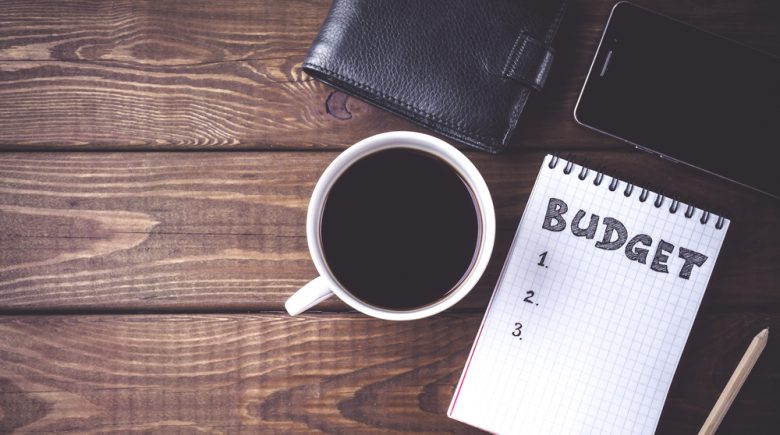Budgeting is one of the best ways to find financial freedom. It’s not just a term that you use lightly, this is powerful stuff that can change how you see everything from purchases to bill paying. We’ve got some tips that are sure to make you’re a budget master in no time.
Make A Plan
It’s common to jump into budgeting before you’ve really thought about, but don’t make this mistake. Remember to “look before you leap” and you’ll be starting off right. Before you get to the budget, think about your expenses as well as your overall debts. A simple list of daily, weekly, monthly, and yearly bills or payments is all you need. Make sure to include items like groceries and transportation; for some reason, these two choices often get overlooked.
While there are some budgeting programs out there, you really don’t need to spend a lot on your budget planning. In fact, a simple spreadsheet or word processing program will be just fine. Let’s be honest, you’re probably looking for something even easier than that. Services like Google Docs will help you carry your budget to any device. Their free of charge and allow you to edit, change, and share the budget with everyone involved.
Set Your Priorities
It’s easy to think about your favorite things as priorities, but that’s not really that important. Priorities are actual items that matter in your life; it’s the rent, the power bill or the medicine you rely on. When you go about a budget, these are details that always come first.
If you’re asking yourself about priorities, check your list. Carefully think about what are your most important items. These are the things you can’t live without, not what you wish you had or want.
Always Leave Room For Accidents And Emergencies
Be strict with the important stuff, but keep in mind that sometimes unexpected things happen. Not talking about that late night cravings for ice cream, these are the real issues that can complicate life if you don’t have enough in the bank. It’s not just medical emergencies either, this category can be everything from the fridge breaking down on the hottest day of the year to unexpected travel for a family problem.
It’s hard to budget for these types of expenses, so look at what you can afford first. A savings account especially comes in handy for these types of situations. If possible, leave room in the budget to add funds to the account. Don’t have a savings account? Treat your standard checking account as if there was a phantom account there. Just allot the amount of monthly funds you want to put away and forget that amount; basically get a sort of financial amnesia. When or if you run out of funds for the month, that amount should remain undisturbed.
Put The Credit Card Away
Credit cards are a great choice when you need to purchase something and don’t have the funds; for that same reason they’re also a budget killer. The buy now, pay later mentality that goes along with credit cards makes it easy to forget how much the actual price paid can change over time. You may be planning on offering one payment in each monthly budget, but the credit card companies can have some very different ideas. With interest and fees, those balanced budgets can quickly become a problem.
For that reason alone, consider using cash or your debit card only. While debit cards carry their own issues, their often a better choice than the credit card option. For one, you can only use the amount of funds in your account. Make sure you are well aware of your bank’s overdraft policies to be sure they don’t pull an overdraft fee on you without alerting you to an empty account.
Avoid Rogue ATMs
ATMs are another budget buster that can make things difficult as you plan to stay on a budget. All ATMs are not created alike, knowing this can help you not only stay on budget, but avoid some very serious fees. Basic rule, avoid independent ATMs. If it isn’t your bank’s official ATM, then keeping going. Many of the so-called independent ATMs are easy to spot since they have no company markings are information. While some will give you a full run down of fees, most don’t. This isn’t a small $1 fee, the actual fees can range between $5 and over $20. If you don’t see the fee, suddenly a $10 purchase can become a $30 charge.
Check Your Bill
If you’ve ever had a bill that just seemed wrong for some reason, you know how stressful it can be to get it changed. Still, the hassle is well worth it when it comes to your finances. When you bills comes in via email or snail mail, read over them; make sure everything is clear. If a new charge has been added or the total is not what you agreed to, there may be a problem. Don’t let it go unnoticed because waiting may mean the charge stays in place or you have no ground to fight it later on.
This doesn’t just apply to the big monthly bills, keep an eye out while shopping. Sometimes a scanner malfunction or checker error can lead to bigger price tags that cost you money and complicate budgets. If you do find an issue, take it the manager or customer service department. Some stores may direct you to a phone number or email address, but be sure you have clear documentation or evidence before leaving the store. This protects you should the store question the validity of your claim an help things run smoother.
There’s no reason to pass up a budget. From saving for retirement to gaining a good credit score, chances are good you’ll find a reason to have one. It doesn’t take a lot to start one, so what are you waiting for? Begin budgeting today for a finally sound tomorrow.
Budgeting is one of the best ways to find financial freedom. It’s not just a term that you use lightly, this is powerful stuff that can change how you see everything from purchases to bill paying. We’ve got some tips that are sure to make you’re a budget master in no time.
Make A Plan
It’s common to jump into budgeting before you’ve really thought about, but don’t make this mistake. Remember to “look before you leap” and you’ll be starting off right. Before you get to the budget, think about your expenses as well as your overall debts. A simple list of daily, weekly, monthly, and yearly bills or payments is all you need. Make sure to include items like groceries and transportation; for some reason, these two choices often get overlooked.
While there are some budgeting programs out there, you really don’t need to spend a lot on your budget planning. In fact, a simple spreadsheet or word processing program will be just fine. Let’s be honest, you’re probably looking for something even easier than that. Services like Google Docs will help you carry your budget to any device. Their free of charge and allow you to edit, change, and share the budget with everyone involved.
Set Your Priorities
It’s easy to think about your favorite things as priorities, but that’s not really that important. Priorities are actual items that matter in your life; it’s the rent, the power bill or the medicine you rely on. When you go about a budget, these are details that always come first.
If you’re asking yourself about priorities, check your list. Carefully think about what are your most important items. These are the things you can’t live without, not what you wish you had or want.
Always Leave Room For Accidents And Emergencies
Be strict with the important stuff, but keep in mind that sometimes unexpected things happen. Not talking about that late night cravings for ice cream, these are the real issues that can complicate life if you don’t have enough in the bank. It’s not just medical emergencies either, this category can be everything from the fridge breaking down on the hottest day of the year to unexpected travel for a family problem.
It’s hard to budget for these types of expenses, so look at what you can afford first. A savings account especially comes in handy for these types of situations. If possible, leave room in the budget to add funds to the account. Don’t have a savings account? Treat your standard checking account as if there was a phantom account there. Just allot the amount of monthly funds you want to put away and forget that amount; basically get a sort of financial amnesia. When or if you run out of funds for the month, that amount should remain undisturbed.
Put The Credit Card Away
Credit cards are a great choice when you need to purchase something and don’t have the funds; for that same reason they’re also a budget killer. The buy now, pay later mentality that goes along with credit cards makes it easy to forget how much the actual price paid can change over time. You may be planning on offering one payment in each monthly budget, but the credit card companies can have some very different ideas. With interest and fees, those balanced budgets can quickly become a problem.
For that reason alone, consider using cash or your debit card only. While debit cards carry their own issues, their often a better choice than the credit card option. For one, you can only use the amount of funds in your account. Make sure you are well aware of your bank’s overdraft policies to be sure they don’t pull an overdraft fee on you without alerting you to an empty account.
Avoid Rogue ATMs
ATMs are another budget buster that can make things difficult as you plan to stay on a budget. All ATMs are not created alike, knowing this can help you not only stay on budget, but avoid some very serious fees. Basic rule, avoid independent ATMs. If it isn’t your bank’s official ATM, then keeping going. Many of the so-called independent ATMs are easy to spot since they have no company markings are information. While some will give you a full run down of fees, most don’t. This isn’t a small $1 fee, the actual fees can range between $5 and over $20. If you don’t see the fee, suddenly a $10 purchase can become a $30 charge.
Check Your Bill
If you’ve ever had a bill that just seemed wrong for some reason, you know how stressful it can be to get it changed. Still, the hassle is well worth it when it comes to your finances. When you bills comes in via email or snail mail, read over them; make sure everything is clear. If a new charge has been added or the total is not what you agreed to, there may be a problem. Don’t let it go unnoticed because waiting may mean the charge stays in place or you have no ground to fight it later on.
This doesn’t just apply to the big monthly bills, keep an eye out while shopping. Sometimes a scanner malfunction or checker error can lead to bigger price tags that cost you money and complicate budgets. If you do find an issue, take it the manager or customer service department. Some stores may direct you to a phone number or email address, but be sure you have clear documentation or evidence before leaving the store. This protects you should the store question the validity of your claim an help things run smoother.
There’s no reason to pass up a budget. From saving for retirement to gaining a good credit score, chances are good you’ll find a reason to have one. It doesn’t take a lot to start one, so what are you waiting for? Begin budgeting today for a finally sound tomorrow.



